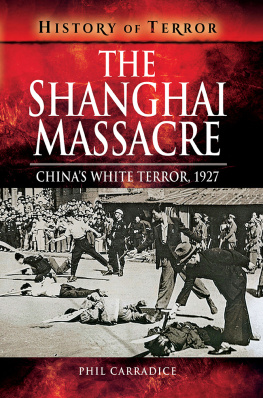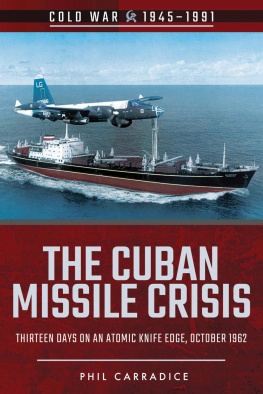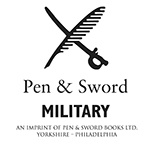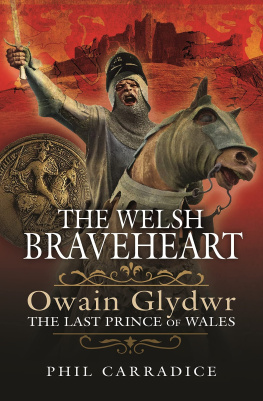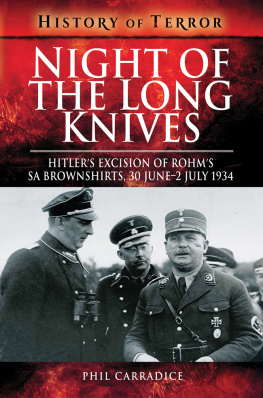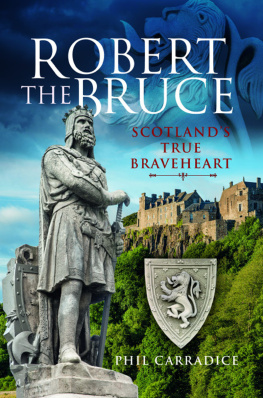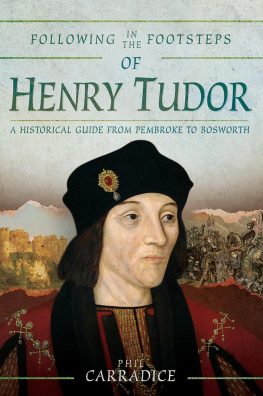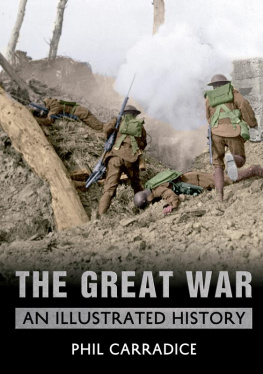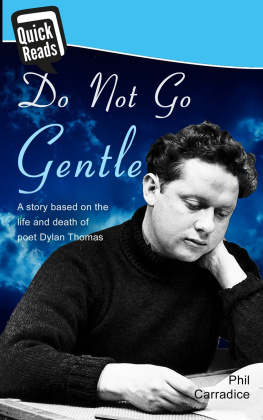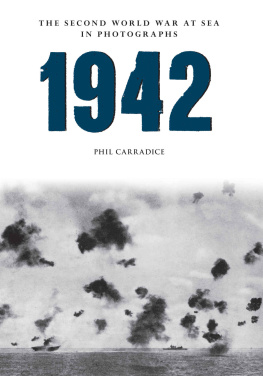Phil Carradice - The Shanghai Massacre
Here you can read online Phil Carradice - The Shanghai Massacre full text of the book (entire story) in english for free. Download pdf and epub, get meaning, cover and reviews about this ebook. year: 2018, publisher: Pen & Sword Books, genre: Art. Description of the work, (preface) as well as reviews are available. Best literature library LitArk.com created for fans of good reading and offers a wide selection of genres:
Romance novel
Science fiction
Adventure
Detective
Science
History
Home and family
Prose
Art
Politics
Computer
Non-fiction
Religion
Business
Children
Humor
Choose a favorite category and find really read worthwhile books. Enjoy immersion in the world of imagination, feel the emotions of the characters or learn something new for yourself, make an fascinating discovery.
- Book:The Shanghai Massacre
- Author:
- Publisher:Pen & Sword Books
- Genre:
- Year:2018
- Rating:4 / 5
- Favourites:Add to favourites
- Your mark:
- 80
- 1
- 2
- 3
- 4
- 5
The Shanghai Massacre: summary, description and annotation
We offer to read an annotation, description, summary or preface (depends on what the author of the book "The Shanghai Massacre" wrote himself). If you haven't found the necessary information about the book — write in the comments, we will try to find it.
The Shanghai Massacre — read online for free the complete book (whole text) full work
Below is the text of the book, divided by pages. System saving the place of the last page read, allows you to conveniently read the book "The Shanghai Massacre" online for free, without having to search again every time where you left off. Put a bookmark, and you can go to the page where you finished reading at any time.
Font size:
Interval:
Bookmark:

CHINAS WHITE TERROR, 1927
PHIL CARRADICE

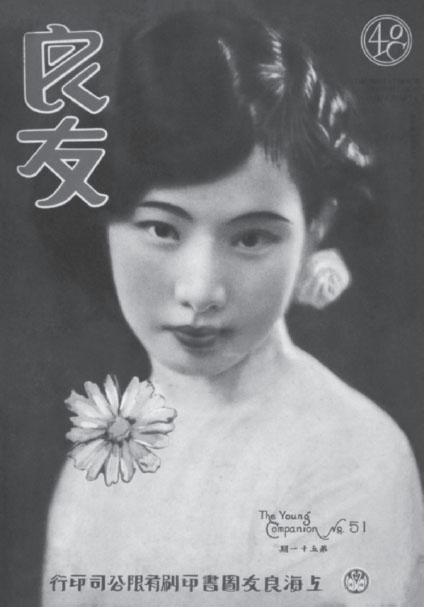
Chen Bo'er: actress, novelist and revolutionist.
First published in Great Britain in 2018 by
PEN AND SWORD MILITARY
an imprint of
Pen and Sword Books Ltd
47 Church Street
Barnsley
South Yorkshire S70 2AS
Copyright Phil Carradice, 2018
ISBN 978 1 526738 89 9
eISBN 978 1 526738 90 5
Mobi ISBN 978 1 526738 91 2
The right of Phil Carradice to be identified as the author of this work has been asserted in accordance with the Copyright, Designs and Patents Act 1988.
A CIP record for this book is available from the British Library All rights reserved.
No part of this book may be reproduced or transmitted in any form or by any means, electronic or mechanical including photocopying, recording or by any information storage and retrieval system, without permission from the Publisher in writing.
Every reasonable effort has been made to trace copyright holders of material reproduced in this book, but if any have been inadvertently overlooked the publishers will be pleased to hear from them.
Maps by George Anderson
Pen & Sword Books Ltd incorporates the imprints of Pen & Sword Archaeology, Atlas, Aviation, Battleground, Discovery, Family History, History, Maritime, Military, Naval, Politics, Railways, Select, Social History, Transport, True Crime, Claymore Press, Frontline Books, Leo Cooper, Praetorian Press, Remember When, Seaforth Publishing and Wharncliffe.
For a complete list of Pen and Sword titles please contact
Pen and Sword Books Limited
47 Church Street, Barnsley, South Yorkshire, S70 2AS, England
email:
website: www.pen-and-sword.co.uk
This short glossary covers people, places and organizations that are important when reading the text. There are many others but these are the significant ones. Use it as a check list, an aide memoir, something to refer back to as the narrative unfolds.
Abbreviations
| CPC | Communist Party of China |
| KMT | Kuomintang, the Nationalist Party formed by Sun Yat-sen |
| NRA | National Revolutionary Army |
| PRC | Peoples Republic of China |
| ROC | Republic of China (based on Taiwan) |
People
| General Bai Chongxi | Hewer of Communist Heads |
| Chiang Kai-shek | Commandant of the NRA and future President of the ROC |
| Du Yue-sheng | Big-Eared Du, gangster and ally of Chiang |
| Emperor Puyi | last of the Manchu Qing emperors |
| Mao Zedong | future Chairman Mao and Chairman of the PRC |
| Mikhail Borodin | Soviet adviser to the CPC |
| Sun Yat-sen | diplomat, philosopher and the father of the nation |
| Wang Jingwei | Chiangs bitter rival for power |
| Zhou Enlai | future President of the Peoples Republic of China |
Places of note
| Beijing | old imperial capital aka Peking |
| Canton | treaty port/ area in the south |
| Guangdong | province in the south, Chinas link with the western world |
| Hong Kong | treaty port/ area in the south |
| Nanking | scene of the Nanking Incident of 1927 |
| Shanghai | the beating heart of China |
| Wuha | western objective of Wang Jingwei |
Gather together any disparate group of people; take them from the pub or golf club, from the street or cinema auditorium, and ask them what they know about the Shanghai Massacre of 1927. In 90 percent of the cases, perhaps even more, the response will be blank faces and vacant stares. Shanghai what, Shanghai when? they will say. These days the massacre is a largely unknown, almost forgotten incident in history. It is easy to see why.
We have always needed villains in our livesreal ones like Genghis Khan, Napoleon, Kaiser Wilhelm and Adolf Hitler. Fictional characters like Dracula, Bill Sykes or Jaws. Without them our own lives seem puny and unfulfilled; villains are what make the world go around.
In the 1950s and 1960s there existed a thriving media-induced paranoia about the power and influence of one particular group of villainsor good baddies as we children used to call them. Mao Zedong, Chairman Mao as he was universally known: he and his warriors from the Peoples Republic of China became the new bogeymen of world politics.
Maos Communist hordes, it was threatened, would soon engulf all of western democracy. Drop the bomb, Mao saidor we were told he saidwe dont care. Therell still be enough of us left to pick up the pieces afterwards. Even for the most relaxed and objective of thinkers, people who would otherwise shrug their shoulders and turn back to their radio, book or newspaper that was something of an uncomfortable image.
Such dreadful warnings and dire prophesies suited the rabid anti-Communist ideals of postwar America. They fitted beautifully with the fears engendered by events like the growth of the Cold War, the building of the Berlin Wall, Chinese involvement in the Korean War and, perhaps worst of all, the McCarthy witchhunts back home in America.
Of course, with America happily ensconced as the new global leader and proponent of all things good, people believed what the US wanted them to believe. America was at the pinnacle of a new world, gleefully paddling its canoe against the stream and selling off all its many standards and ideals. It was inevitable that American attitudes quickly pervaded all of western culture.
It was cleverly done although, in many cases, not always so subtly achieved as the Americans might have liked. In childrens comics, in newspapers, in films, in television programmes, the message was exported to the world with all the force of a sledgehammer: Communism was a force for evil, an ideology that was preventing self-expression and, perhaps more importantly, was equally as hell bent on stopping honest men and women from making an honest buck. Subtle, clever or not, the world lapped it up.
The same media frenzy somehow managed to firmly engulf Maos Nationalist opponent Chiang Kai-shek, albeit from a different end of the spectrum. If Mao had become the bad guy, Chiang was suddenly imbued with the role of prospective martyr or victim. Mao bad, Chiang good. In the eyes of the west Chiang was quickly established as a noble freedom fighter, waging a hopeless battle against the onrushing power of the left-wing thinkers and politicians of the world: To the world Chiangs lean, trim, erect figure bespoke resoluteness and determination. His asceticism and personal austerity seemed to befit a man of dedication to the ideal of a China resurgent against insuperable odds.
The fear was that Chiang might always lose the battle. He was already on the back foot and if he lost, America would lose and, consequently, so would the world. That fearand the somewhat skewed understanding of the two sides then fighting for control of Chinahas somehow never quite left us.
The end of the Chinese Civil War in 1950 had seen the military defeat and withdrawal of Chiang Kai-shek and his Nationalists to the island fortress of Taiwan some 110 miles off the eastern seaboard of China. Chiang was battered but unbowed and on Taiwan, not unlike the part-time soldiers of Britains Dads Army in 1940, Chiang and his force of two million Nationalists hurled defiance and rhetoric at their conquerors.
Font size:
Interval:
Bookmark:
Similar books «The Shanghai Massacre»
Look at similar books to The Shanghai Massacre. We have selected literature similar in name and meaning in the hope of providing readers with more options to find new, interesting, not yet read works.
Discussion, reviews of the book The Shanghai Massacre and just readers' own opinions. Leave your comments, write what you think about the work, its meaning or the main characters. Specify what exactly you liked and what you didn't like, and why you think so.

